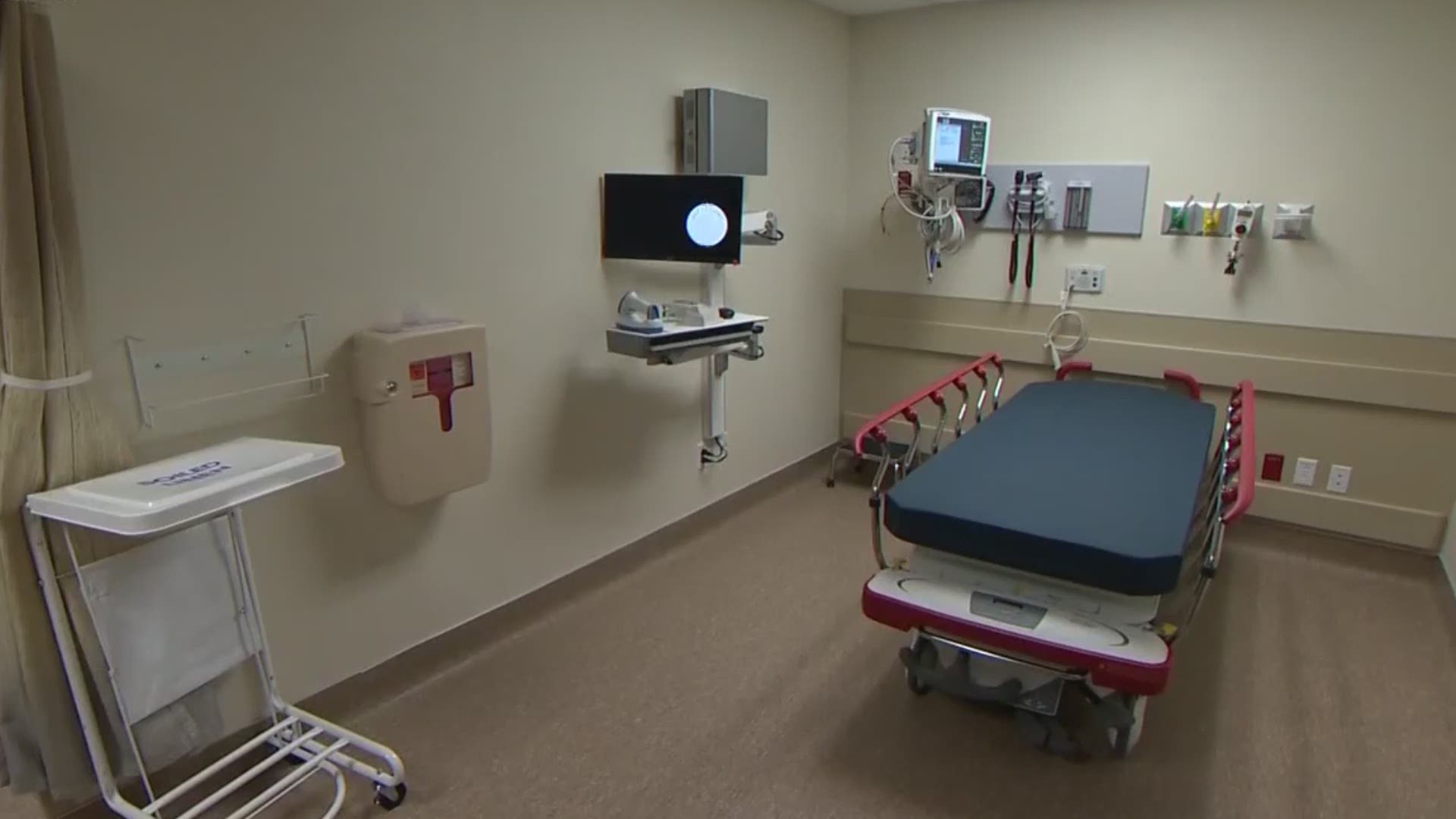AUSTIN, Texas — Medical professionals are trading their exam rooms for their phones and computers to treat patients during the coronavirus pandemic.
Telemedicine is when medical professionals provide care to patients remotely, using technology when they are not physically together.
As long as an injury or illness is not urgent, telemedicine is a good option to help reduce people's exposure to the virus, Dr. Samuel Deliberato, medical director over Austin Circle C Clinic at Baylor, Scott & White Health told KVUE.
"Our goal as outpatient workers is to contact the patient, evaluate their health, and leave the front line workers at the hospital to care for those with severe symptoms that need hospitalization and emergency room care," Deliberato said.
Many people are already jumping on board. Deliberato said his schedule is almost 100% video calls.
Since releasing their COVID-19 questionnaire, healthcare workers with Baylor Scott & White conducted 104,000 online screenings, which led to more than 28,000 e-visits.
Prior to coronavirus reaching their service area, the health system had more than 485,000 registered telehealth users.
RELATED:
Theresa LaPera typically goes into her doctor's office for care, but when she burned her arm recently, she reconsidered that decision.
"I have been isolated in my house at least a couple weeks and I didn’t want this little accident to put me at risk of being infected when I have been really, really careful," LaPera said.
She also wanted to keep the emergency rooms and urgent care centers clear for COVID-19 patients.
"You have pregnant nurses, nurses with underlying symptoms and medical staff with underlying symptoms," said Shawn Dargusch, the executive vice president of the healthcare division in Texas at GQR, a recruiting firm. It's really tough for them to be on the front lines and they are more susceptible."
As someone who staffs hospitals with nurses in Texas, he said limiting exposure helps keeps these workers healthy and hospitals staffed.
There are still barriers to overcome.
“We have to get over some of those initial fears of they aren’t going to be able to diagnose me if they don’t see me," Dargusch said.
People may also worry about insurance limitations with telemedicine.
On March 13, 2020, Gov. Greg Abbott authorized an emergency rule to reduce barriers on insurance coverage.
The rule requires that the same services must be reimbursed at the same rate whether provided in-person or through telemedicine.
If an individual cannot access a video screen for telemedicine services, Deliberato recommended they reach out tho their provider who may be able to work out alternative options, like a phone call.
"Our goal why we became physicians or providers is to take care of people, no matter how we can do it," Deliberato said.
Wait times will vary and could be longer than usual due to the coronavirus crisis. If a medical issue is urgent, contact your primary physician or call 911.
Baylor, Scott & White is providing a free online screening questionnaire for anyone who has questions or concerns about their risk of infection with COVID-19. It is available on the MyBSWHealth app and online.
MORE CORONAVIRUS COVERAGE:
- ‘Onward’ released on Disney Plus early: Stream the new Pixar movie today
- Wall Street futures, global markets down Friday on US job losses, pricier oil
- Navy hospital ship in New York with 1,000 beds has 20 patients
- Target to limit guests in stores, supply team members with masks and gloves
- On the front lines: What additional steps APD is taking to protect its officers from COVID-19

